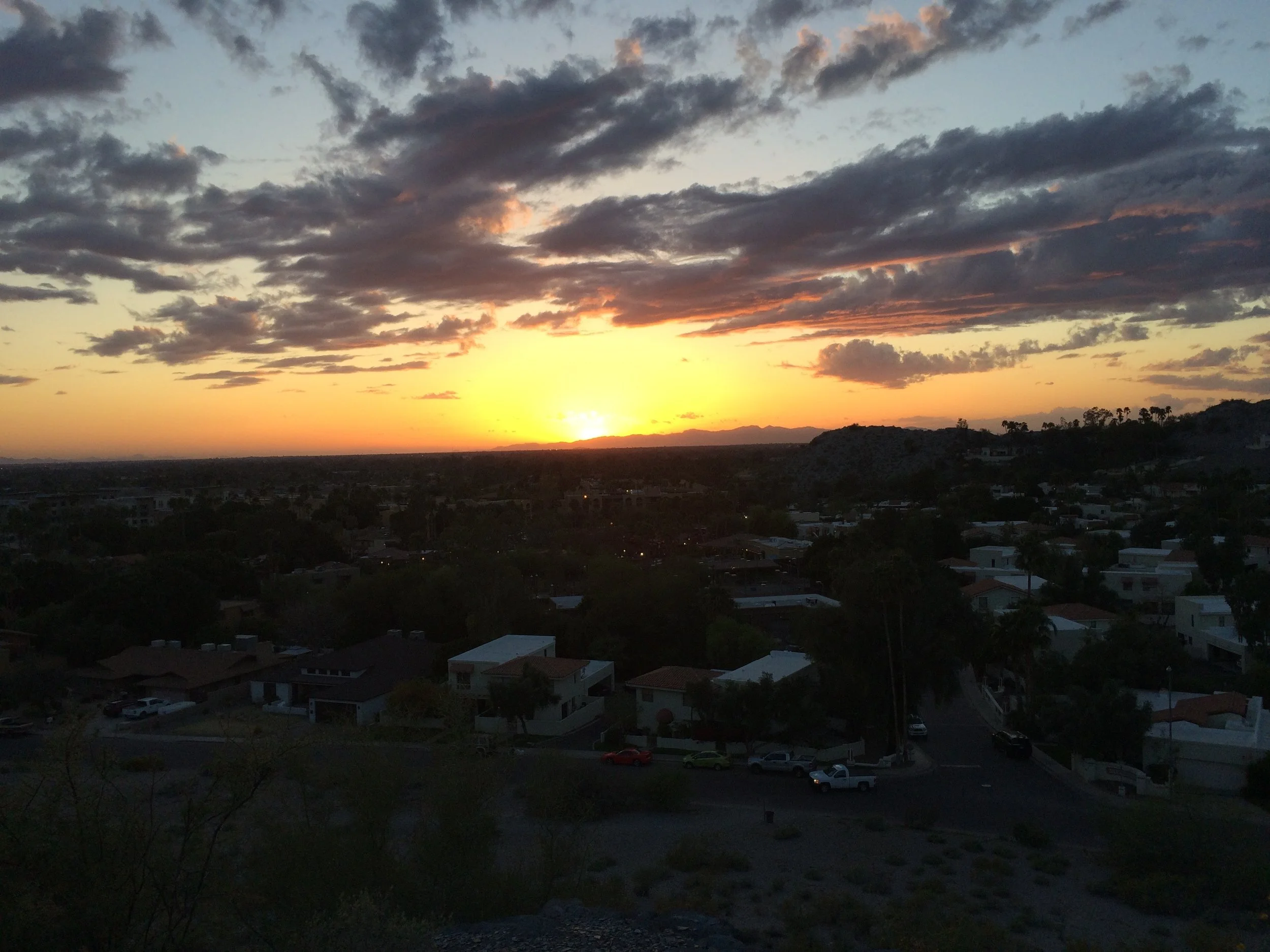#15 TATWTD. Pre-Easter Darkness
This blog is the second in what will be three Easter-themed posting. The third will be posted Easter weekend. This one is dedicated to three friends too recently introduced to pre-dawn sorrow: For you, N.J.M.
Matthew’s Gospel, Chapter 28:1-10
It’s possible that many of us have heard this story throughout life.
It’s possible that this is a new story to some.
The chapter begins,
“Now after the sabbath, toward the dawn of the first day of the week . . .” then, explains that two women set out to do what had to be done.
Matthew’s account begins on a morning soon after a heartbreaking event,
with sorrow,
with what is unavoidable for anything living on earth — the dawning of a new day.
In this case, one day following Sabbath, a Sunday, the first day of the Jewish week.
Few 21st century Christian know much about 1st century Sabbath observations —
what had to be done,
what could not be done between Friday sundown and Sunday dawn.
Our habits of honoring God differ.
But, religious or not, nearly anyone can appreciate the feelings
of the women Matthew introduces;
two women who knew, trusted, loved Jesus, and watched him die.
When their heads hit pillows (if they used pillows), Friday, Saturday,
their hearts were broken
their hopes, dashed.
Many know what it is like to wake “toward the dawn,” toward the dawn of the first day after loss; after the stir of ceremony and condolences, after the escape of sleep, waking when we wish we wouldn’t; when we wake to suffering.
I say,
Let us notice, this was not yet a time of good news;
this is a time of sorrow,
in a place of darkness,
following a very, very hard time;
A time when it simply would have been wrong, even cruel,
to impose
“look on the bright side,”
“cheer up, things will get better,”
or the offering saccharine spiritual distractions.
The morning remains dark.
Only the day’s name differs,
not the reality for those waking.
Those in this story who loved Jesus were in a hard place,
Here, however, is what encouraged me:
In the opening verse of Matthew 28
What must be done,
What should be done but hadn’t yet been done because of the Sabbath restraints,
caused women whose hearts were heavy,
to rise before dawn,
to haul buckets full of aromatic spices
toward a grave to properly tend a body much too hastily entombed.
Matthew 28:1 holds a strong lesson for me:
Mary Magdalene and the other Mary “went.”
Even if our hearts are broken, we seek purpose.
Or, like Gideon, even if our confusion about God causes anger,
Or, like Moses, even if we feel inadequate to the task,
Or like Esther, even if the risk terrifies us,
We are called to step into the new day,
not knowing what to expect, and
often well before we have much light shed on what is ahead of us.
Still, we are called to find purpose.
Mary Magdalene and the other Mary
stepped into the difficult day.
And, good that they did.
“BEHOLD!” Matthew 28:2
There will come a time,
a morning, a day, an hour, a moment when sorrow shifts
allowing room for lightheartedness, for a wedge of happiness, for hope.
Not, we know, as quickly as it came for Matthew’s two women but with the right sort of help,
in the right amount of time,
“Behold” will bore into a broken heart and deliver a word of relief.
It’s an ancient sounding word, really, “Behold.”
It sounds quite religious to modern ears.
We might expect to hear it in “Charlie Brown’s Christmas Play.”
Linus, standing before a stage curtain,
beginning to recite . . .
“And, Behold, there were with the angels a multitude of heavenly hosts.”
Who hasn’t heard it?
But, in common Greek,
(the language that Matthew used) the word resembles
what you might hear from a 17-year-old
Running into the house with the mail,
“Mom, Dad, I made the Olympics Luge team!”
Or, depending on what kind of kid you have . . .
“Got into Stanford — Full Scholarship!”
I don’t want to startle you, but, It’s like this:
“HEY!”
“BEHOLD!”
In the Greek: ιδου!
This is a word used when something new, something important, is introduced. It conveys “a peculiar vivacity by bidding the hearer to be attentive,” says Thayer’s Lexicon.
In the chapter before 28, Matthew lists some of the people who attended the death of Jesus:
Simon, who helped lug the cross to the hill of death
The great un-named, “THEY,”
they - who offered him wine,
they who gambled for his garments
They who nailed a mocking sign above his head
They who died beside him;
Chief priests, elders, bystanders trying to hear what Jesus was saying . . .
Centurions and those with them . . .
“many women who followed Jesus” standing at a distance
Joseph - a man of Arimathea who had a tomb to loan,
And, as was tradition, townspeople expressing god-only-knows what sort of attitudes
One man I wish were there is missing; Surely, he could have been. He lived nearby. He could have spared so much sorrow.
This man, Lazarus, could have shouted out against this sorrow
He had reason to believe in resurrection
because he had experienced it.
Lazarus could have run through the crowd, shouting “Don’t worry! There’s more to the story!”
He might have comforted the mother of Jesus
Lazarus might have yelled,
“Behold!! Look! I’m proof of what Jesus has said —death doesn’t win!”
But, nearly as I know, Lazarus wasn’t there.
Lazarus wasn’t shouting hope.
For those who cared,
to move from Friday’s horror to Sunday’s hallelujah,
from utter devastation to supreme joy,
Required a time of brokenheartedness,
Required functioning when it didn’t feel good to function,
Required a time of confusion,
required those who grieved to do what needed doing;
Required a painful pause between Friday’s sorrow and Sunday’s dawn.
So lies the path of grief, so lies the story of love.



